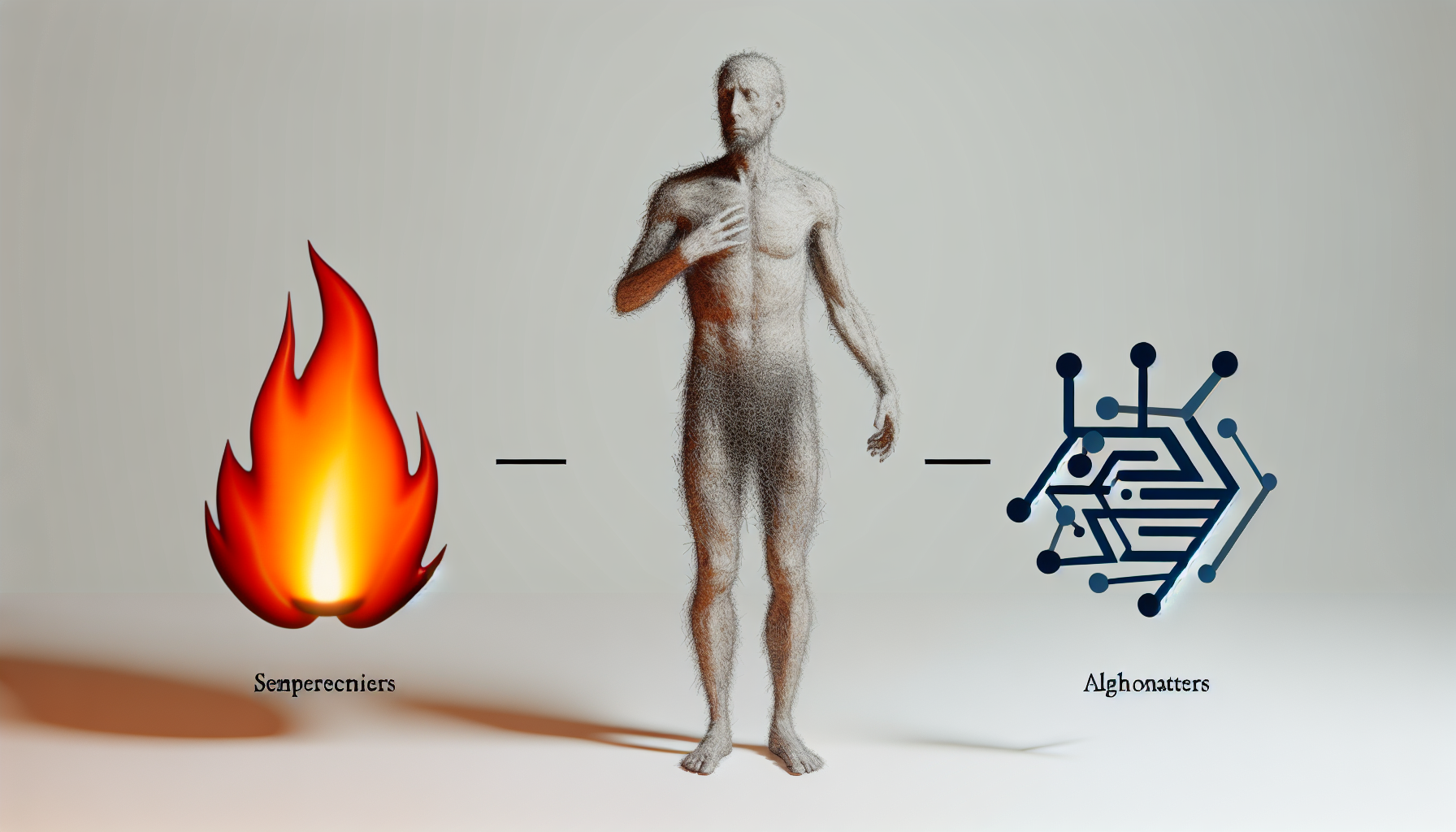Artificial Intelligence (AI) is to modern society what fire was to early humans: elemental and transformative. Just as fire revolutionized how humans interacted with the world, AI is reshaping our notions of identity. But what does this mean for us? How does an entity of semiconductors and algorithms influence the soft, messy essence of being human?
Let’s peel back the layers of this onion and explore.
The Mirror Effect
One of the most fascinating aspects of AI is its uncanny ability to serve as a mirror to human society. AI not only learns from vast datasets but also subtly reflects the biases, values, and aspirations embedded in that data. When we train an AI on photographs from around the world, it picks up not just the images but the societal norms and prejudices lurking in them.
Consider the AI in social media platforms that curates our news feeds. It’s designed to show us content we are likely to engage with, reflecting our existing beliefs and biases back at us. This “mirror effect” can reinforce our habits and ideas, further solidifying a fragmented view of who we are.
Automation and Self-Worth
We’ve long tied our identity to the work we do. When people ask, “What do you do?” they’re often looking for a shorthand summary of your skills, passions, and even your social status. But what happens when AI takes over tasks we once considered uniquely human?
The rapid growth of AI in the workplace raises questions about self-worth. If a machine can do your job faster and more efficiently, where does that leave you? Paradoxically, while AI frees us from mundane tasks, it also challenges us to define ourselves beyond our work. We’re pushed to look inward, to cultivate aspects of our identity that machines can’t replicate—empathy, creativity, and the quest for meaning.
Identity in a Digital Age
Digital avatars and virtual assistants provide another lens through which we can view AI’s impact on human identity. In an increasingly digital world, our online personas can sometimes feel even more “real” than our physical selves. The digital realm liberates us from physical constraints, offering the freedom to reimagine who we are.
Yet, this isn’t without peril. How authentic can a digital persona be when algorithms largely determine the content we see and the interactions we have? It can become easy to lose sight of our true selves in a digital hall of mirrors. To live authentically in the AI era, we need to maintain a balance between our digital and physical identities.
AI and Emotional Intelligence
Ever had a conversation with a chatbot that felt eerily human? Advances in natural language processing have brought us AI that can engage in meaningful, emotionally sophisticated conversations. This raises intriguing questions: Can AI develop its own form of emotional intelligence, and what does this mean for human relationships?
While current AI lacks genuine emotions, it can simulate responses that make it appear empathetic. This simulation can have therapeutic uses, such as offering support to people dealing with mental health issues. However, we should be cautious not to mistake simulated empathy for the real thing. Relying too much on AI for emotional support may erode our ability to connect deeply with other humans. After all, there’s no substitute for a real hug or a genuine smile.
Ethical Considerations
AI wields immense power, and with great power comes great responsibility. The ethical implications of AI are vast, ranging from privacy concerns to the potential for algorithmic bias. How we handle these issues will significantly shape our identities and society as a whole.
For instance, facial recognition technology has the potential to deter crime, but it also poses serious privacy risks. As a society, we need to carefully weigh the benefits and drawbacks, ensuring that AI serves the common good without infringing on individual rights.
Finally, ethical AI requires transparency. Users should know how AI algorithms make decisions that affect their lives. This knowledge empowers people to interact with AI more critically and thoughtfully, fostering a more informed and engaged society.
Conclusion
AI is more than just lines of code and algorithms; it’s a tool that challenges us to reconsider what it means to be human. It’s a mirror reflecting our values, a liberator from mundane tasks, and a force that can both connect and isolate us. As we continue to integrate AI into our lives, it’s crucial to navigate this landscape thoughtfully.
In the end, AI may influence our identities, but it doesn’t define them. Our essence, the quintessential “humanness,” is something no machine can replicate. Maybe that’s the greatest insight AI offers us—a renewed focus on the qualities that make us uniquely human. So, let’s embrace the future with wisdom and a touch of the philosophical curiosity that has always been our species’ hallmark. After all, when it comes to shaping identity, the most critical component will always be us.

Leave a Reply